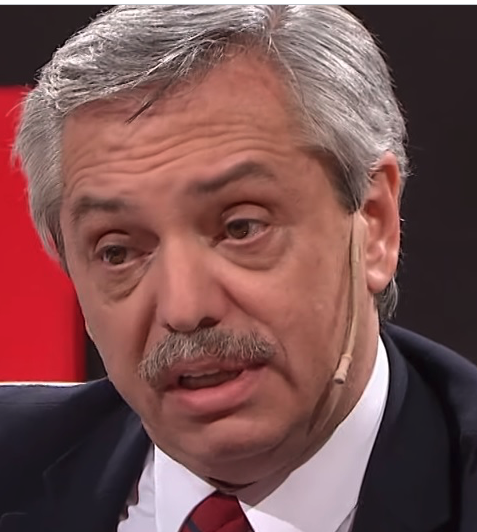In the midst of the storm unleashed by the victory of Alberto Fernández in the primary elections in Argentina, which predict a possible return to the power of the Peronists, international managers and analysts try to gauge the situation: what measures will a hypothetical new government take? Will there be default, renegotiation with the IMF, capital control? … And, above all, a key question: Is the Argentine risk
sworth it?
Luc D´hooge, Vontobel‘s Head of Emerging Markets Bonds, and his colleague Thierry Larose, Senior Portfolio Manager, have entered fully into the risk analysis that matters most to international investors.Thus, they point out the risks of a Fernández presidency is that the new administration will embark on a left-wing populist agenda that includes (classified by ascending gravity):
- A loss of independence from the central bank.
- A sudden stop of the Macri economic and social reform agenda
- A loss of transparency and credibility in inflation figures.
- A reimplementation of capital controls.
- A repudiation of the current reserve agreement of the International Monetary Fund (IMF)
- A possible restructuring of the external debt.
Therefore, Vontobel analysts ask: Are we now negotiating at an attractive price for the risk we take? “For us, the answer is yes. The current risk premium of the external debt includes a decent remuneration in the event of default, and the current valuations of the local debt are in line with a strong depreciation of the currency along with the imposition of capital controls. In addition, the IMF will not only record a cancellation of its $ 44 billion rescue program. In addition, it makes no sense for a country with a large current account deficit to stop paying its foreign currency debt (especially when that debt is governed by foreign law, for example, debt issued in the United States and the United Kingdom).”
For the manager there is another question: What are the risks of Argentina following Venezuela in an economic abyss? “The answer here is more nuanced. Argentina has a long history of political errors. Macri achieved good things, but all his efforts were ruined by his gradual approach and monetary policy errors of late 2017 and early 2018. In fact, we believe that the new administration will have no choice but to continue with Macri’s policies. However, the problem is that they will try to avoid the most unpopular (for example, labor reform and a strict monetary policy), placing the country on the same wrong path again, the one that failed miserably before,” they say from Vontobel. Luc D´hooge and Thierry Larose explain that investors are waiting for some clarity about Fernández’s economic policies and bet that he adopt a pragmatic stance since “power spreads pragmatism”.
The past weighs and Fernandez is surrounded by a sea of mistrust
Markets are discounting with a 78% probability that Argentina fails to comply with its debt obligations with a Peronist government, Schroders says in a long report.
Pablo Riveroll, director of Latin American equities, said that “if Alberto Fernández is elected, as we expect now, the continuation of political orthodoxy is a significant risk. Although Fernández’s economic plan is still unclear, his popularity is driven primarily by his formula partner, former President Cristina Fernández de Kirchner. Kirchner has been very critical of the agreement with the IMF, the elimination of capital controls and increases in energy tariffs, as well as having several accusations of corruption against him. Alberto Fernández himself also made radical comments during the campaign, including the reestablishment of capital controls and the relaunching of growth through the easing of fiscal and monetary policy. If he tones down these views in the coming months is an open question.”
Riveroll highlights the distrust he creates amongst many investors: “It will take a long time to understand what Fernández’s true policies will be, so for the next 12 months we would expect much greater uncertainty, a deterioration in growth due to the lack of confidence and a reversal of the recent fall in inflation. Given the increase in uncertainty, we expect investors to take into account a higher risk premium and significant downward revisions of the benefits The outlook for Argentina, both for short and medium term, has deteriorated sharply after the primary elections on Sunday and, therefore, the stock market is unattractive as an investment destination.”
James Barrineau, Director of Emerging Markets Debt Relative of Schroders, affirms that “the investors in debt will look for two signs in the short term and in the first place, a response of Fernandez. Although for the most part he remained silent in the period before the primary elections, he said some imprudent things about economic policy. However, as it is the clear favorite now and alleged winner, it has an incentive to try to calm the markets and not attract a renewed atmosphere of crisis from day one. Second, a demonstration of the ability of the central bank to limit currency volatility. A substantial depreciation of 20% or more later could trigger another round of higher inflation and an additional depreciation spiral, and make debt metrics unsustainable in the medium term.”
Opportunities in emerging markets?
Fidelity warns that the result of the Argentine primary could reverse its pro-market policies. Andressa Tezine, senior sovereign debt analyst, says markets will focus on “when and how a potential Fernández-Kirchner government would announce new controversial measures that would reverse Macri’s reforms. Regardless of the timing of the official announcements, the markets will discount this in the price before the October 27 elections. Consequently, investors should be very attentive to the political evolution of the coming months and consider whether they can withstand the associated risks. If concerns about Argentina extend to emerging markets in general, opportunities could be created for agile investors in countries with no connection to this electoral process or its final outcome,” concludes Fidelity.
